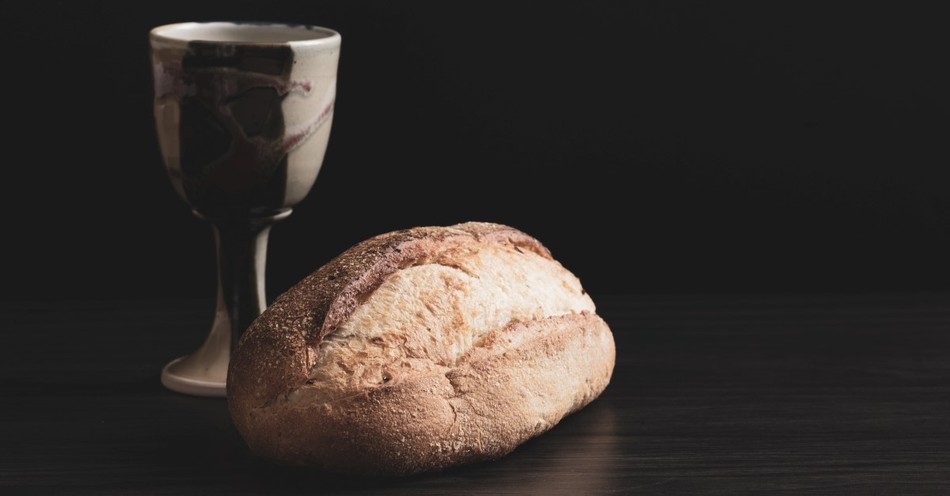Taking the Lord’s Supper or communion is one sacrament we participate in as believers. A simple definition of a sacrament is a practice done when Christians come together.
As a young kid, I had no clue what communion meant. All I knew was they passed the plate, and I took a cracker from one plate and a cup of grape juice from the other. Thank God for his grace because I did not know what I was doing. As I have grown up, I now understand fully what the Lord’s Supper is, but I know another truth. Sometimes in church, we do the activity without fully understanding why we do it. Taking the Lord’s Supper may fall into that category. For this reason, I will answer five questions surrounding the Lord’s Supper. After reading this, you will hopefully have the right foundation regarding this all-important sacrament.
Question 1: What Is the Lord’s Supper?
The Lord’s Supper comes from what is commonly known as the Last Supper. During Jesus’ last meal with his disciples, he celebrated Passover with them, establishing a new covenant and creating a new sacrament.
“While they were eating, Jesus took bread, and when he had given thanks, he broke it and gave it to his disciples, saying, ‘Take and eat; this is my body.’ Then he took a cup, and when he had given thanks, he gave it to them, saying, ‘Drink from it, all of you. This is my blood of the covenant, which is poured out for many for the forgiveness of sins.’” (Matthew 26:26-28)
When I go back to the young kid taking a cracker from the communion plate, I realize I was taking a representation of Jesus’ broken body and his spilled blood. Some denominations, primarily Roman Catholics, believe in transubstantiation, where the bread and wine or juice become the actual body of Christ when you take it. I don’t agree with that position, but I will save that discussion for another article.
Question 2: When Should We Take the Lord’s Supper?
When you look at different denominations and churches, you will discover they have different timeframes for how often they take communion. Some churches do it once per month, usually on the first Sunday of the month. Other churches will do it every Sunday, and some will do it sporadically, with no set time or schedule.
You may wonder if the Bible defines when or how often you should take communion? The answer is no. There is no obvious answer to how often you should partake in the Lord’s Supper. That is why there is not one set standard across the board. When Jesus conducted the first communion, he did not instruct on how frequently you should take it.
Some people will refer to the book of Acts to answer the frequency question.
“Every day they continued to meet together in the temple courts. They broke bread in their homes and ate together with glad and sincere hearts.” (Acts 2:46)
“On the first day of the week we came together to break bread.” (Acts 20:7)
While these verses might show how often they took communion in the first century, they do not establish a rule we must follow today. Some people get hung up on the frequency question. But, if Jesus did not emphasize how often we should do it, and nowhere else in the New Testament instructs us either, this may not be the most urgent question. It is definitely not one to divide over. The critical aspect is not how often you take it. What is more important is your heart and attitude when you are taking the Lord’s Supper, which leads to the next question.
Question 3: How Should We Take the Lord’s Supper?
The best way to answer this question is to remember what the Lord’s Supper is all about.
Communion is a time to remember what Jesus has done. “And he took bread, gave thanks and broke it, and gave it to them, saying, ‘This is my body given for you; do this in remembrance of me’” (Luke 22:19).
Communion is a time to proclaim the Lord’s death. “For whenever you eat this bread and drink this cup, you proclaim the Lord’s death until he comes” (1 Corinthians 11:26). When we take communion, we don’t just remember that he died. We also remember that his shed blood provided the forgiveness of our sins. Communion is not just a solemn moment but also a celebratory one.
Communion is a time to repent. “Everyone ought to examine themselves before they eat of the bread and drink from the cup” (1 Corinthians 11:28). As long as you come to the communion table remembering, proclaiming, and repenting, you take communion with the right heart and attitude.
Question 4: Why Should We Take the Lord’s Supper?
You could say we take the Lord’s Supper because Jesus said to do this to remember him. While true, what is the benefit of remembering Jesus in this fashion? Here are some things you can remember every time you take communion.
- Communion reminds you how much he loves you.
- Communion calls to attention the great sacrifice he made for your salvation.
- Communion helps you remember your sins are forgiven because of the shed blood of Jesus.
- Communion lets you know you were redeemed not with corruptible things like silver or gold but with the precious blood of Jesus.
- Communion renews the hope that Jesus is coming again one day, and we will share communion with him in heaven.
- Communion reinforces that even though your salvation is free, it came at a great price.
- Communion is an eternal demonstration of God’s great love for you, and if you ever doubt how much he loves you, just return to the Lord’s Supper.
Question 5: Where Should We Take the Lord’s Supper?
Like the frequency, there is no specific setting where you must take the Lord’s Supper. We see the initial Lord’s Supper happen in an upstairs guest room of an unidentified man’s house. In Acts, we see them breaking bread in their homes, sharing the Lord’s Supper. In Corinthians, it seems as if the gathering for communion was a whole church event. Because many Corinthians were not properly partaking of the Lord’s Supper (using it for gluttonous and other selfish reasons), Paul had to give them instructions on how to do it. When you consider these different scenarios from the Bible again, the focus shifts from where you should take communion to how.
If you take the Lord’s Supper correctly, you can take it anywhere and anytime. You are not just limited to taking communion when your church offers it. If you and your spouse want to remember the Lord in your home, you could take the Lord’s Supper there. It is much more important to understand why you are doing it and focus on how you are doing it than getting hung up with where and when.
Taking the Lord’s Supper or Communion is something every believer should look forward to and participate in. The opportunity to reflect on all Jesus has done for us should be celebrated and welcomed.
Photo Credit: Getty Images/Kara Gebhardt

This article is part of our Christian Terms catalog, exploring words and phrases of Christian theology and history. Here are some of our most popular articles covering Christian terms to help your journey of knowledge and faith:
The Full Armor of God
The Meaning of "Selah"
What Is Grace? Bible Definition and Christian Quotes
What is Discernment? Bible Meaning and Importance
What Is Prophecy? Bible Meaning and Examples



